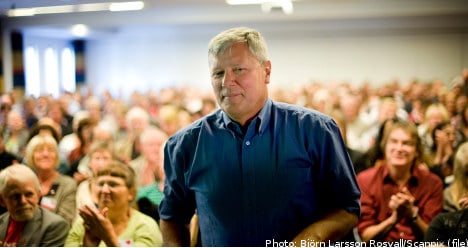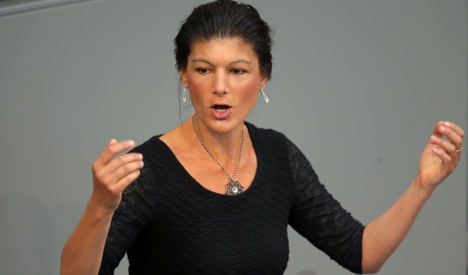The Left Party will thus become the last of the three Red-Green opposition parties to appoint a new leader following their crushing defeat at the 2010 general election.
Lars Ohly was elected in 2004 as a long term successor to Gudrun Schyman, who went on to form and lead the Feminist Initiative.
Filling the charismatic Schyman’s shoes proved a tough task however for Ohly and the Left Party under his stewardship was never able to get close to the record highs of the late nineties, forged on a programme of radical socialism and feminism.
Indeed not only was the Left Party unable to regain its status as Sweden’s third largest party, achieved with over 12 percent of the vote in the 1998 election, an aura of ideological stagnation returned to characterise much of the party’s electoral performance during the 2000s.
Lars Ohly, who was elected as leader with the support of the traditionalist wing of the party, is perhaps best known for his refusal to moderate his definition of himself as a Communist.
“It served to give a gifted leader an aura of the 1950s and made people think of the Soviet Union instead of left socialism,” SVT journalist K-G Bergström wrote in the Expressen daily following Ohly’s announcement.
Ohly, who is widely regarded across the political spectrum as an amiable man and skilful debater, claimed on Tuesday that his greatest success was to leave a party more united that when he found it.
In reality this unity can be attributed to the fact that Gudrun Schyman’s supporters no longer felt at home in the party. Several of these less revolutionary socialist and more reform-minded Left Party members formed “Vägval Vänster” – an association often critical of Ohly and seeking to offer an alternative to his brand of socialism.
The difficulty of integrating the Left Party into a dynamic centre-left coalition to challenge the 2010 election was illustrated in 2008 when the party pulled out of talks with the Social Democrats and Green Party over differences on economic policy.
The Left Party later rejoined the Red-Green coalition but after Sweden’s voters passed judgement at the 2010 election, the project was swiftly discarded.
Lars Ohly recognised on Tuesday that political leaders are measured by their election results and after polling 5.6 percent in the 2010 election, the party’s poorest showing since the crisis years of 1991, internal opposition began to grow.
While as late as June 2011 Ohly pledged to fight on as leader, the pressure ultimately became too much and the keen football supporter and former train conductor decided to call time on his tenure.
Ohly has said that he plans to continue to sit in parliament for the Left Party and to cooperate in the party’s process of revamping its political programme.
Three candidates – Jonas Sjöstedt, Ulla Andersson and Hans Linde – have to date put their names forward to take over the leadership. Some party members are also calling for a leadership duo along the lines of the Green Party’s man/woman team.



 Please whitelist us to continue reading.
Please whitelist us to continue reading.
Member comments